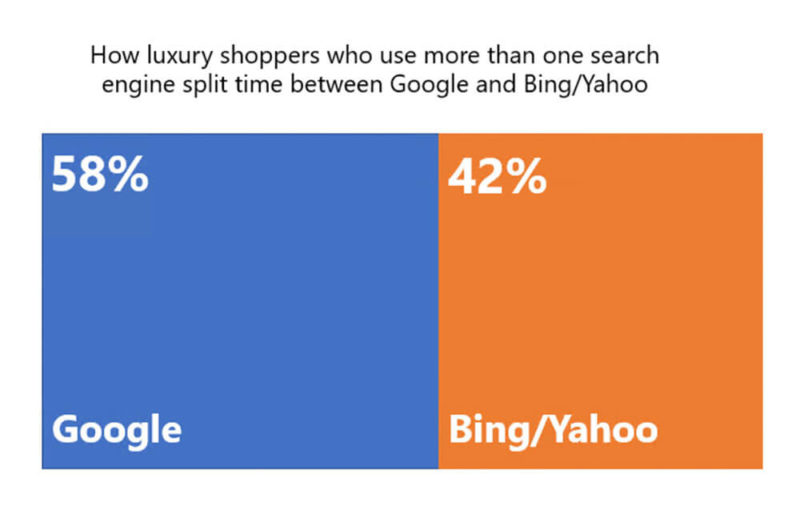Microsoft Advertising has detailed four new consumer personas that represent changes in how marketers reach and relate to their audiences across verticals. The personas (luxury shopper, digital nomads, empowered activists and self-care enthusiasts) were identified via Microsoft’s first-party data and analytics over the last 18 months.
Luxury shoppers. This persona was primarily an in-store audience, but they increased in numbers at the outset of the pandemic as luxury retail locations closed. Even though physical locations have largely re-opened, the luxury shopper persona has remained, signifying a permanent consumer behavior shift.

Luxury shoppers “value quality and seek ways to make everyday items more luxurious,” Stephanie Worley, global brand marketer at Microsoft Advertising, wrote, “Their preference for luxury extends into expecting the same seamless, personalized shopping experience in online service as they would receive in-store.” They’re also thorough, conducting extensive research and using multiple queries to find brands that meet their standards. You can learn more about the luxury shopper persona from Microsoft’s study of first-party data for recent luxury shopping trends.
Digital nomads. Remote work became mainstream when offices closed last year. This location-independent audience works while traveling. “The behavior is so prominent, an entire industry is springing up around them,” Worley said, “One example is RVShare, one of the first RV rental marketplaces that nomads are excited about.”
As shoppers, this group uses online research across verticals as much or more than any other group: They’re regularly looking for housing and transportation, as well as the needs, services and amenities that go along with life on the road. They use mobile devices, change locations frequently and the search terms they use make them a viable target for numerous verticals, such as travel products, grocery and dining, entertainment, housing and transportation.
Empowered activists. This audience votes with their wallet, purchasing primarily from brands that align with their ethics and values, which might include stances on the environment, diversity and/or small business brands.
Marketing messages that resonate with their beliefs are more likely to have an impact on this group. They’re also more likely to be interested in and search for political, environmental and/or social issues.
Self-care enthusiasts. The anxiety, stress and fear of the pandemic, combined with uncertainty from political and social upheaval, has led some consumers to turn to self-care for relief. Thus, mental and physical health are a priority for this group.
“Self-Care Enthusiasts are masters at switching between work and life during the day,” Worley said, “Because of this, they expect to get information quickly and to have a seamless digital experience across multiple devices.” They’re often searching for fitness ideas, diet tips, ways to manage their professional and personal lives and leisure activities in their hybrid work-life reality.
Why we care. Identifying what’s important for your target audience is crucial to creating products, services and messaging that actually resonates with them. Their behavior is a reflection of their priorities and showing them that your brand supports those priorities can mean more opportunities to convert.
The emerging personas that Microsoft Advertising has identified were born out of the disruption consumers experienced since the start of the pandemic. If brands are able to demonstrate that their products and values are evolving with the needs of their audiences, they may also be able to extract more customer lifetime value from them.
The post Four new personas are changing how marketers reach and relate to customers, according to Microsoft Advertising appeared first on Search Engine Land.
No comments:
Post a Comment